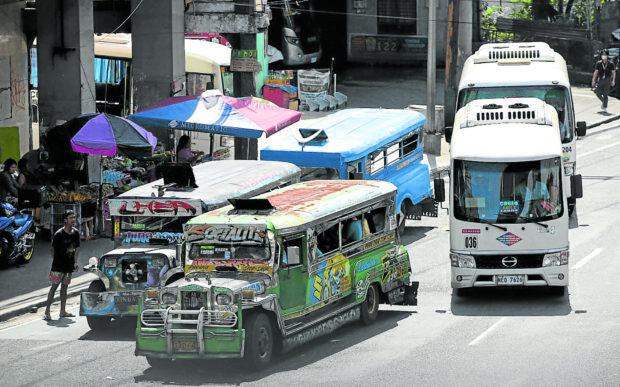MANILA, Philippines — President Ferdinand Marcos Jr. wants to shorten the “trigger period” for the provision of fuel subsidies to public utility vehicle (PUV) drivers, according to Energy Secretary Raphael Lotilla.
“The president gave instructions on changing the language of the 2024 GAA (General Appropriations Act) provision on fuel subsidies for the transport sector in order to shorten the trigger period from three months to one month and simplify requirements,” Lotilla said at a Palace briefing.
Under the current policy, the government may release fuel subsidies to the transport sector if Dubai crude has reached $80 or P4,546.48 per barrel for three months.
“Well, it will shorten the period within which the subsidy can be released to our drivers. Because before, it would take three months, and the difference is quite obvious in terms of being able to help the transport sector,” Lotilla said.
He added the amendment was still possible because Congress has yet to pass the 2024 General Appropriations Bill.
If approved by Congress, the new policy would take effect in 2024, Lotilla said.
READ: Rising fuel prices forecast to ease off by the last quarter of 2023
READ: DOE sees mixed movements of fuel prices
In September this year, the Department of Budget and Management approved the release of P3 billion in fuel subsidies for PUV drivers, including tricycle drivers.
Lotilla explained that the fuel subsidy “took some time” to be released this year because the Department of Transportation (DOTr) had to consolidate the list from various government agencies.
Under the new process, he said the DOTr would be responsible for the list from the Land Transportation Franchising and Regulatory Board, while the Department of the Interior and Local Government would manage the list from local governments and the Department of Trade and Industry would “take care of the rest.”
